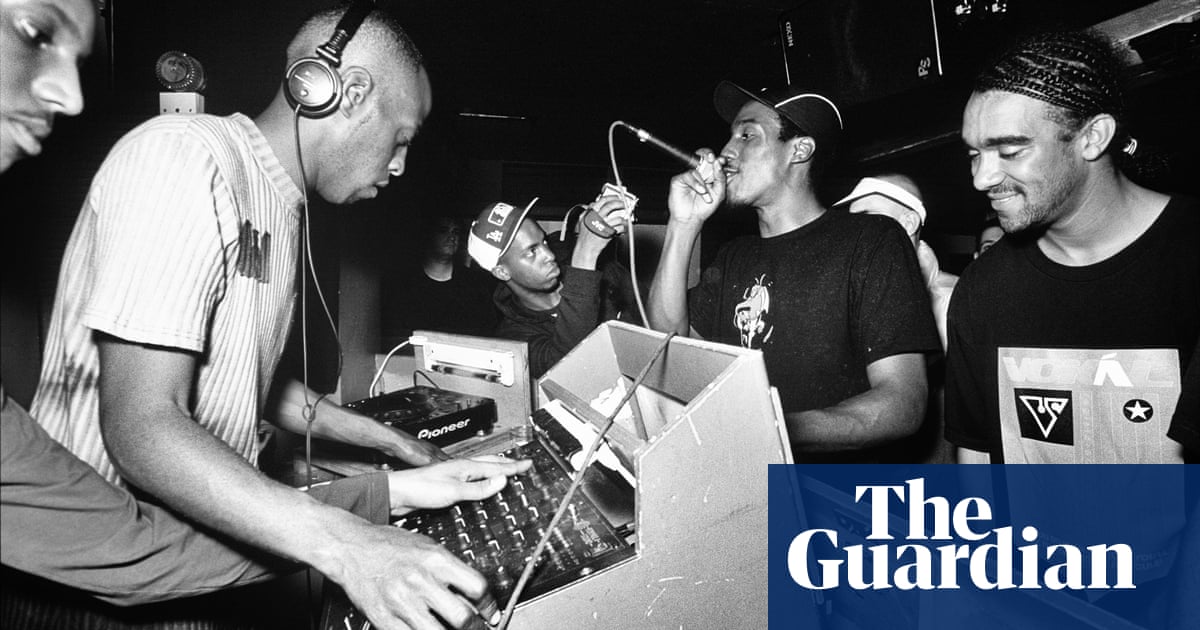The Wickedest by Caleb Femi (4th Estate, £14.99)
Hypnotic and freewheeling, the follow-up to the Forward-winning Poor constructs a communal memoir of a typical night at a monthly house party known as “The Wickedest”. Femi’s multimedia project includes photos, floorplan of the clubhouse, an illustrated tutorial on “destruction dance”, a police risk assessment form, a manifesto of DJ principles, text messages between partygoers and myriad poetic forms. “We danced or / I wrestled a flame for oxygen”. The book captures the sensual chaos of dance and the sociopolitical dynamics of a clubhouse culture where Black working-class communities share a common rhythm of grief and euphoria. Femi’s lines capture the “ebb and flow of community spirit” and a more personal voice: “My generation are digital hoarders – / hypocrisy is a well-fitting glove.” There are fun, satirical poems including one called Boris Johnson came to the shoobs (uninvited): “Maybe he came here for cleansing, / to lower the cholesterol of grief, / feast on the ebullience of the mandem.” “We sing, / half-making up the lyrics”, Femi writes, and Wickedest celebrates the process of making and making up when art confronts change.
Signs, Music by Raymond Antrobus (Picador, £10.99)
Antrobus’s fourth collection taps into the age-old subject of parental anxiety in our troubled world. Adopting a casual rhythm, the two long autobiographical poems address his child before and after birth, from the perspective of a loving and dutiful father: “I burp and feed you and bounce and read and sing and nothing / gives you rest your cries tear air I hold you up / my mind a swung bell.” Antrobus captures ordinary life with an episodic, unconstrained energy, taking us to Oklahoma, New York, a gender-neutral restroom, Bloomsbury Square, Cape Town, and the Serpentine Gallery. The familiar details – sleep deprivation, name-choosing, baby-monitors – loom large. Themes of deafness, sign language and heritage prevail, as the poet remembers his father: “He was / a man of vague poetic-sounding sayings, / allowed himself a looseness, a non-commitment / to specificity.” While Antrobus is committed to life’s specificity, there is looseness in the book as it mulls over the conflict between belonging and unbelonging, the joy of a new life and a world disfigured by prejudice.
The Keelie Hawk: Poems in Scots by Kathleen Jamie (Picador, £12.99)
A stunning bilingual collection in which Jamie translates her own Scots poems into English, The Keelie Hawk is a book of devotional observations about woodpeckers, herons, seagulls, hailstones, sea-mist, ghost deer, roses, graves, the wind, the pilgrim’s way, dewdrops, foxgloves, Ice Age glaciers – all swerving between the animate and inanimate, micro and macro, peculiar and universal. Jamie’s poems expose the almost hidden habitats shared by fauna and flora: “a woodpecker drumming that just jinked between two birches … Stone, did you just blink? Yes, once in a thousand years.” By decentring and dissolving human observation within the wider natural landscape, Jamie’s poetry offers a new way of seeing the world and a new form of intelligence about ourselves and other species. While the Scots shapeshifts and dances on the page, the English translations anchor downwards into prose-like poems. The parallel texts create a unique dynamic, inviting the two languages, like two species, to interrogate and understand each other. “Warld-luve. / Warld-luve? / Hou no?” (“World-love. World-love? Why not?”) Jamie asks. This generous, inquisitive book helps us re-engage with the world by unlearning our familiar sightlines.
Scattered Snows, to the North by Carl Phillips (Carcanet, £11.99)
After 16 books of poems and a Pulitzer, Phillips gives us another pitch-perfect collection, a meditative chorus about Eros, death, memory, and the troubling climate of our time. This is the best that poetry offers – earthly but not earthbound, self-aware yet never self-indulgent, philosophical but with a firm awareness of emotional puzzlement. “You can treat the past / like a piece of fine glass to see yourself / reflected in; or to see through”, Phillips writes. Reminiscent of late WB Yeats, Wallace Stevens and Elizabeth Bishop, his muscular, interrogative poetry investigates “the beautiful colours / of extinction”, admitting that “the truth is / an over-washed sweatshirt, sometimes on / purpose worn inside out”. Phillips has an unparalleled gift for teasing out the peculiarity of grammar and syntax; his breath-long, branching lines move in an unpredictable pattern that keeps our hearts stopping and racing: “Like looking / violence for once straight / in the face and watching it / turn, if not gentler, then / differently violent, and / telling yourself that’s not / nothing, at least, and / calling it Eros.” Open-minded, erudite and deeply moving, this book of love and memory will withstand years of rereading.
